Remarkable Spaces

Changing spaces
After social distancing requirements were removed in summer 2021, we gradually returned our Library study spaces to what they were pre-pandemic. We also ceased using the space booking system which we introduced to ensure equitable access when the number of our physical study spaces was reduced.
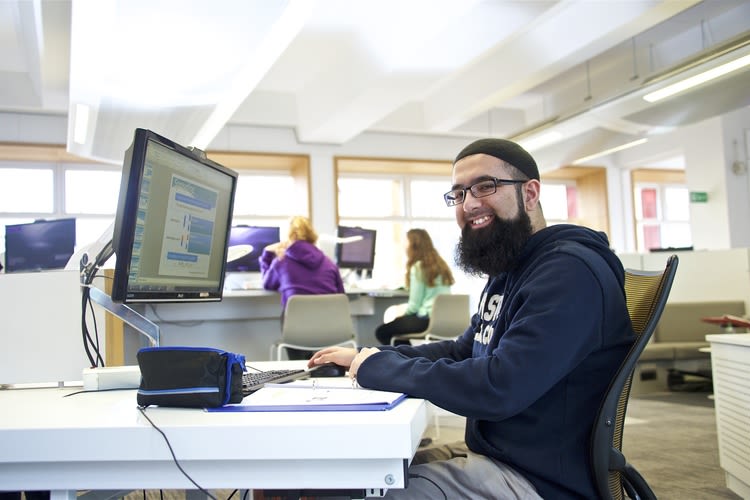
We updated 160 study spaces in the Alan Gilbert Learning Commons in July 2021, adding power sources to most of the refurbished seats. As more students returned to campus, demand increased. In January 2022 we responded by creating 250 additional individual study spaces in the Main Library and Alan Gilbert Learning Commons, most with power sources.
To support ID Manchester, we closed the doors of the Joule Library for the final time in June 2022. Collections from the Joule Library (mainly Science and Engineering) were moved and integrated with the stock at Main Library.
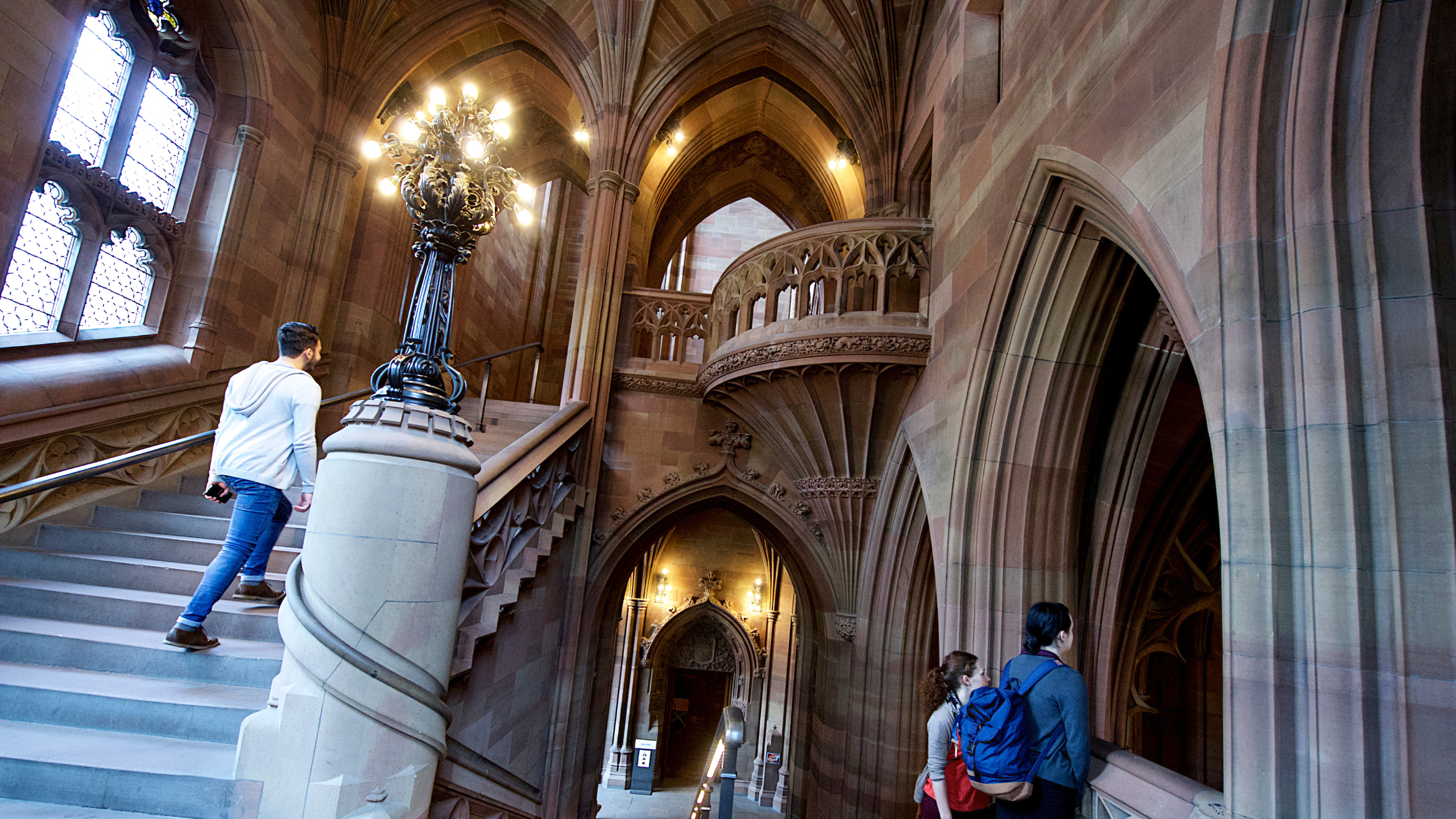
Student Support Hubs
In summer 2022, we closed the Kantorowich Library to enable the creation of a Student Support Hub, in partnership with the School of Education, Environment and Development.
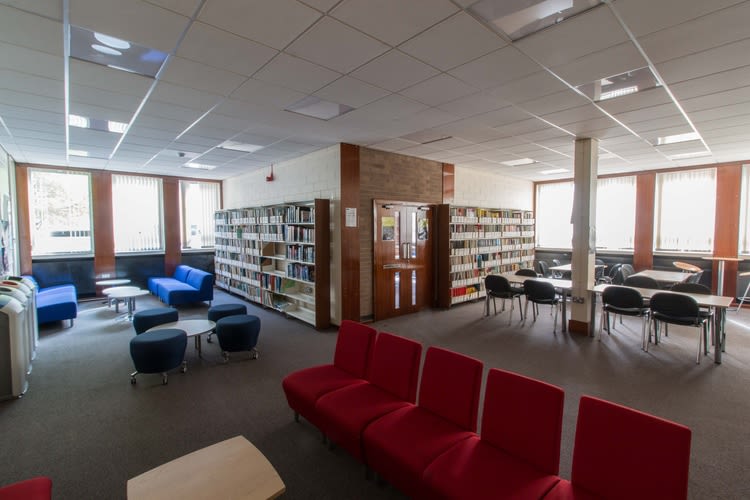
Scheduled to open in Spring 2023, the Student Support Hub will comprise of confidential consulting rooms, an area for less formal student consultations, and an open reception area for both Library and student support staff. The study space will include individual study booths, traditional desk spaces, group study rooms, a map reading and digital archive viewing room, and individual study chairs.

Rylands Next Chapter
We launched the ambitious Rylands Next Chapter project in 2021. This project ties into our current priorities of supporting research and public engagement with research by providing outstanding facilities.
The Next Chapter project is intended to prepare the Rylands for the challenges and opportunities of the mid-21st century. This project takes place twenty years since Unlocking the Rylands was initiated, which was the latest major redevelopment project for the space.
Key priorities of the Next Chapter project are to:
- Redevelop the modern ground floor to create a flexible, high-quality event space for academic events, research-led teaching and public engagement events.
- Develop a new Advanced Imaging Studio to upscale our digitisation and advanced imaging programmes in support of research.
- Create world-class exhibition facilities, which will enable us to display key items across the full range of our collections and support innovative public engagement with research.
- Reconfigure the modern entrance to improve visitor flows and highlight to visitors that they are entering one of the great libraries of the world.
- Create a learning space in the cellars beneath the 1890s building for student teaching, school groups, and hands-on learning such as using historic printing equipment, for example.
The consultant team is led by project managers Arcadis and conservation architects Donald Insall Associates. They have worked intensively with staff from several Library teams to develop the brief, undertake feasibility studies and produce concept designs. In October 2022, they completed Stage 2 of the planned works.
We are expecting to receive formal approval from the University to proceed to Stages 3 and 4 from February 2023 onwards. In parallel with the design work, we are developing a funding strategy to ensure that the project is fully affordable. All being well, we expect the project to be completed by the end of 2024.
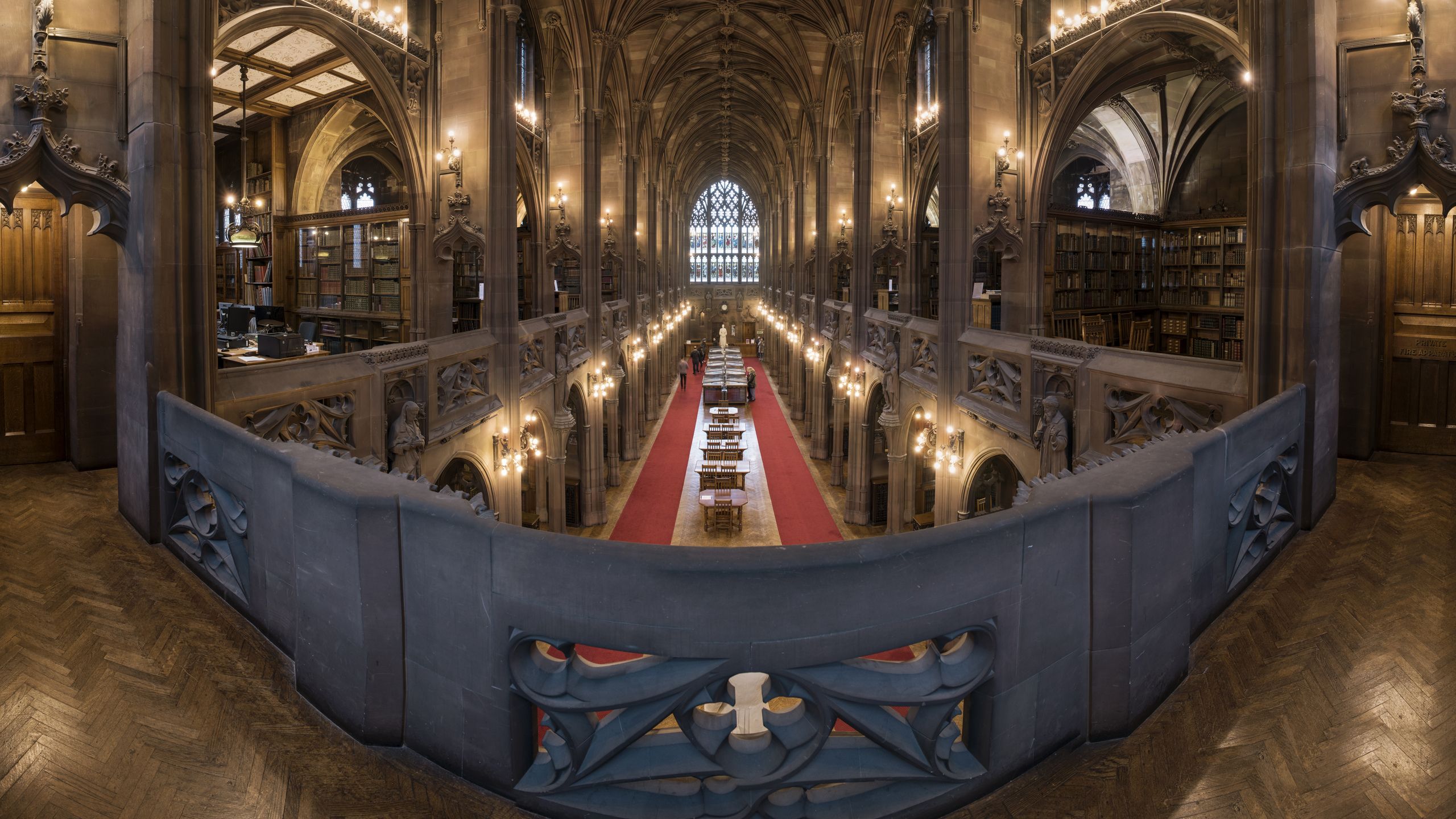
Care for the historic building and furniture
In 2021, the Rylands Building Care team were given training in specialist cleaning techniques and equipment by conservation cleaning company Hog & Fitch. From this training, the team have created a cleaning plan for the historic parts of the building which prioritises care for and protection of some of its beautifully crafted but difficult to clean features. There is a particular focus on decorative stone and woodwork, as well as the collections themselves.
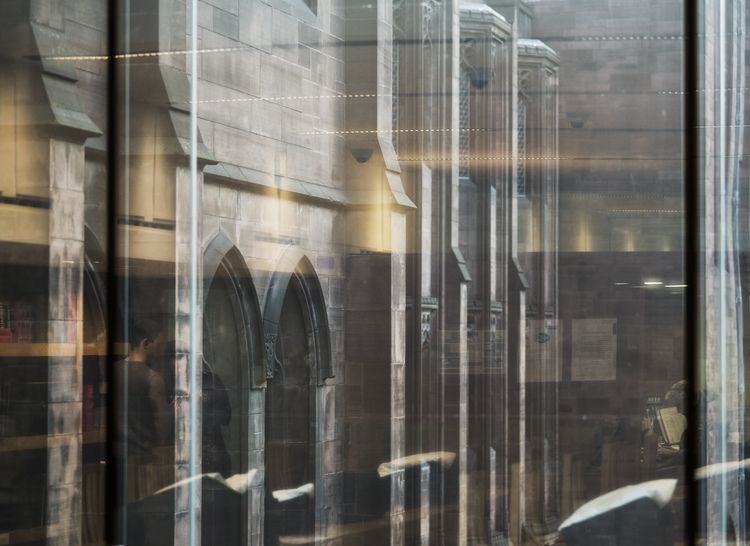
The Rylands also employed a furniture restorer, beginning an annual programme of repair on the original Rylands oak furniture, of which there are more than five hundred pieces.

Rylands visitors
In 2021/22 the Rylands welcomed 143,282 members of the public to explore the building. This is despite the various social distancing regulations that were enforced during the first half of this period and the reduced number of days we were able to open.
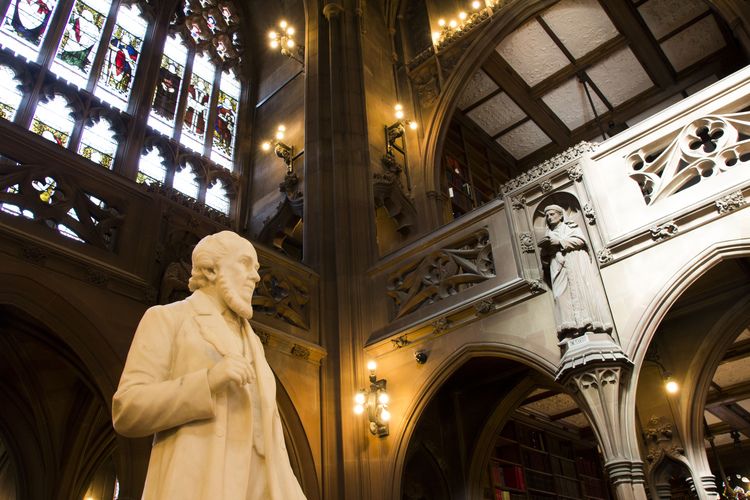
This is a real achievement from the newly formed Visitor Services Team.